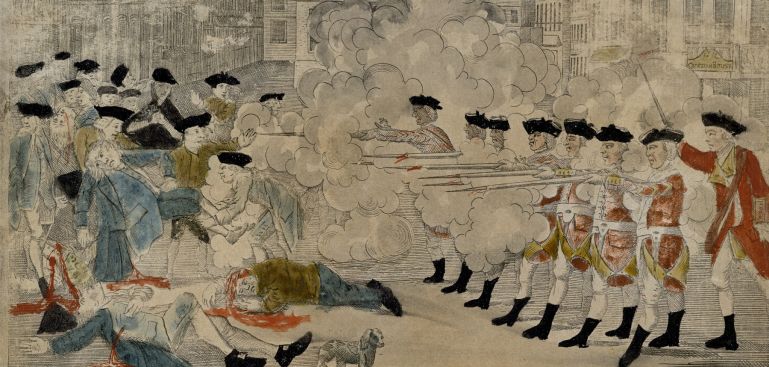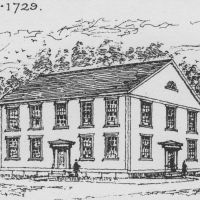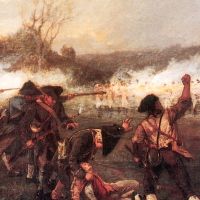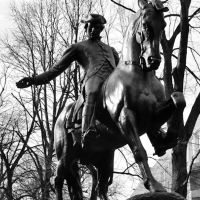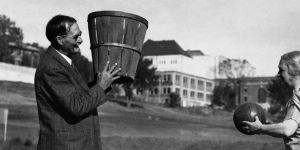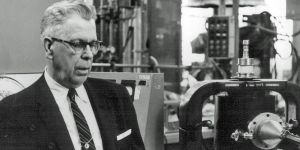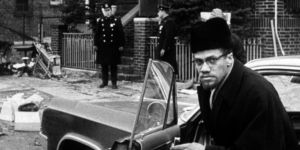March 5, 1770
Five Die in Boston Massacre
Region:
Greater Boston
On this day in 1770, Crispus Attucks, a black man from Framingham, and four other civilians were shot by British soldiers. Attucks worked on whaling ships and, between voyages, as a semi-skilled laborer around the port of Boston. There were many men—white and black—who resented the presence of the British Army, not so much as a threat to their rights as self-governing citizens but more as a threat to their already precarious economic position. They were ready to follow Attucks when he led them into a violent confrontation with a group of British Regulars. Although the soldiers were ac quitted on the grounds of self-defense, the incident has been known ever since as the Boston Massacre.


